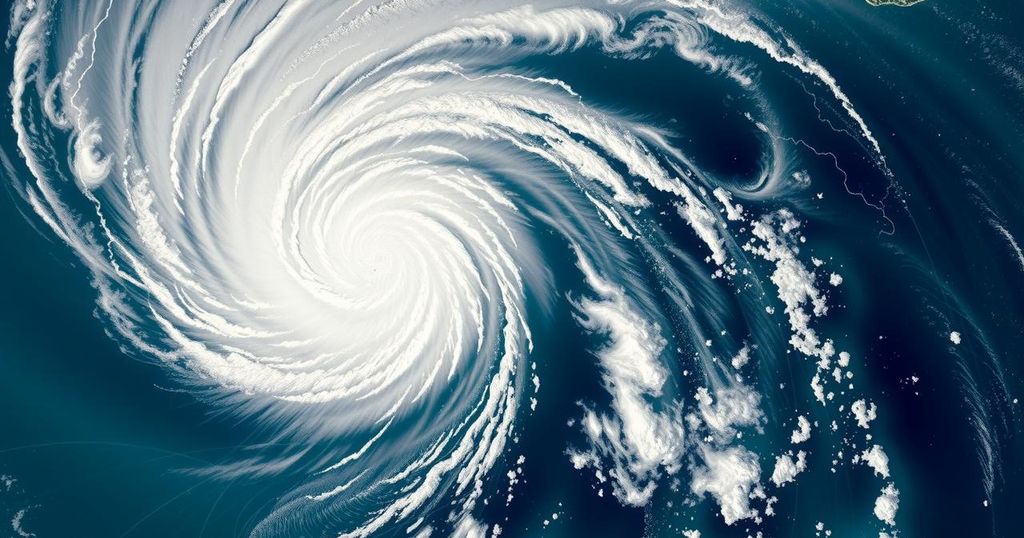Tropical Cyclone Chido has caused devastating damage in Mayotte, with winds exceeding 220 km/h. The territory remains under alert while preparing for recovery efforts amid significant destruction. The cyclone continues toward eastern Africa, affecting other island nations and raising concerns about extensive flooding and humanitarian crises. Expanded emergency responses are necessary as the region faces the implications of climate change on severe weather events.
The French territory of Mayotte, situated in the Indian Ocean, has experienced severe destruction due to Tropical Cyclone Chido, which has now shifted its trajectory towards the eastern shores of Africa. The cyclone, packing winds surpassing 220 kilometers per hour, has uprooted roofs and devastated local infrastructure. Despite the lack of immediate casualties, the impact has been described as one of the most intense cyclones since 1934, according to Mayotte’s Prefect, Francois-Xavier Bieuville.
As Mayotte recovers from the cyclone, authorities remain on high alert, urging residents to seek refuge in sturdy shelters. Current conditions remain perilous, with state and local emergency services adequately mobilized to respond to the aftermath. Reports indicate widespread power outages, damage to homes, and fallen trees throughout the region, necessitating the deployment of additional rescue personnel from both France and the nearby territory of Reunion.
The effects of Cyclone Chido extend beyond Mayotte, impacting neighboring Comoros, where authorities have issued red alerts in response to the storm. Emergencies have been declared, with additional focus on the safety of fishermen who have gone missing after being caught in the storm. Preparations have been made across several other nations, including Mozambique, Malawi, and Zimbabwe, which are in the projected path of the cyclone, facing the potential for extensive flooding and humanitarian crises.
The cyclone season, from December to March, has increasingly posed challenges due to the effects of climate change, as evidenced by past devastating storms such as Cyclone Idai and Cyclone Freddy, which wrought significant tolls in the region. The increasing frequency and intensity of such storms hinder impoverished nations from effectively managing the humanitarian crises triggered by these natural disasters.
Moving forward, it is essential for international communities to acknowledge this emerging trend of stronger cyclones and support the affected regions in their recovery efforts. Coordinated responses and aid for rebuilding and future preparedness will be crucial in mitigating the adverse effects of such disasters in southern Africa.
Tropical Cyclone Chido represents a significant meteorological event impacting Mayotte and surrounding regions. Historically, the period from December to March constitutes cyclone season in southeastern Indian Ocean, posing recurrent threats to parts of Africa. Recent years have seen heightened concern regarding the intensification of cyclones due to climate change, leading to a greater frequency of natural disasters in southern Africa. Past cyclones, including Idai and Freddy, have resulted in tragic loss of life and significant infrastructural damage, exacerbating humanitarian crises.
In summary, Tropical Cyclone Chido has caused extensive damage in Mayotte and poses risks to adjacent regions as it approaches the African mainland. Amidst the destruction, local and state emergency services have been mobilized to address the immediate needs of the population. Neighboring islands and nations are bracing for potential catastrophic impacts, highlighting the urgent need for enhanced preparedness and international cooperation in the face of increasingly severe cyclones driven by climate change.
Original Source: www.voanews.com






